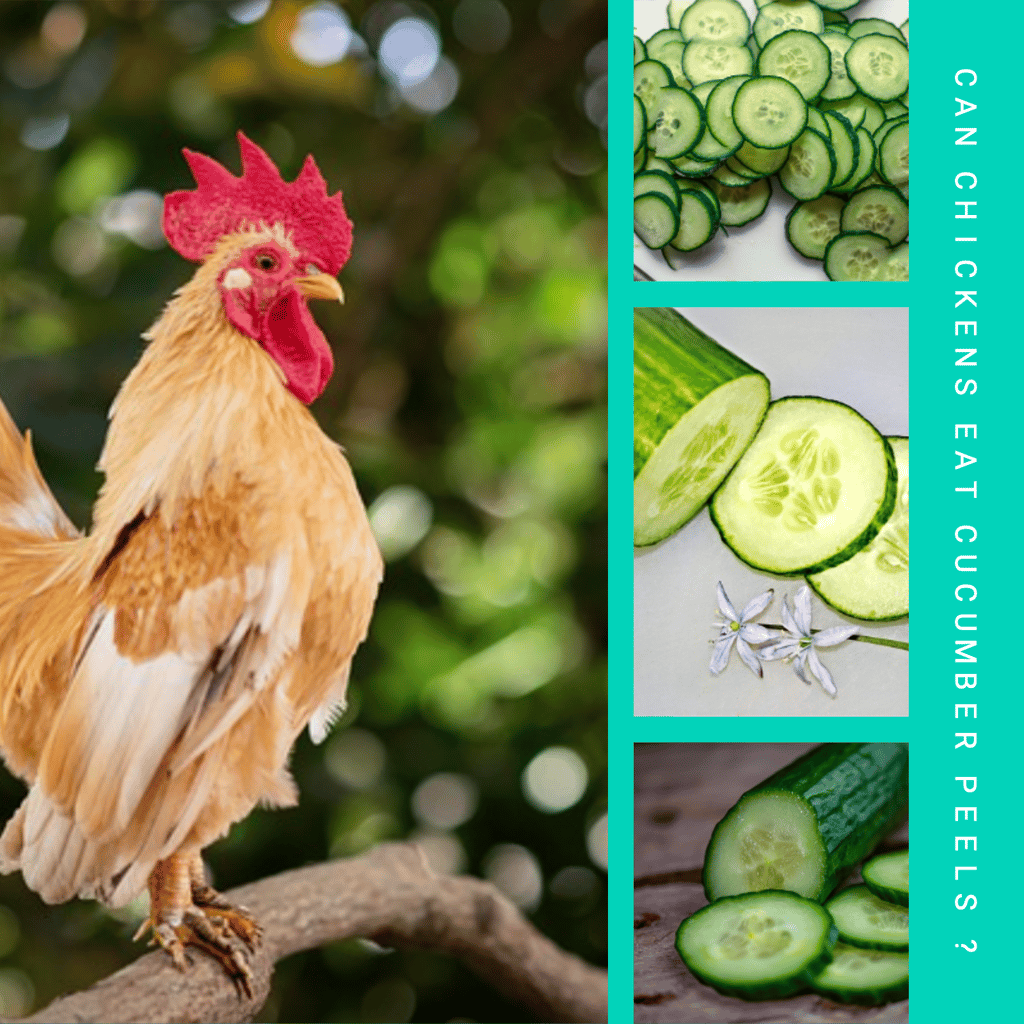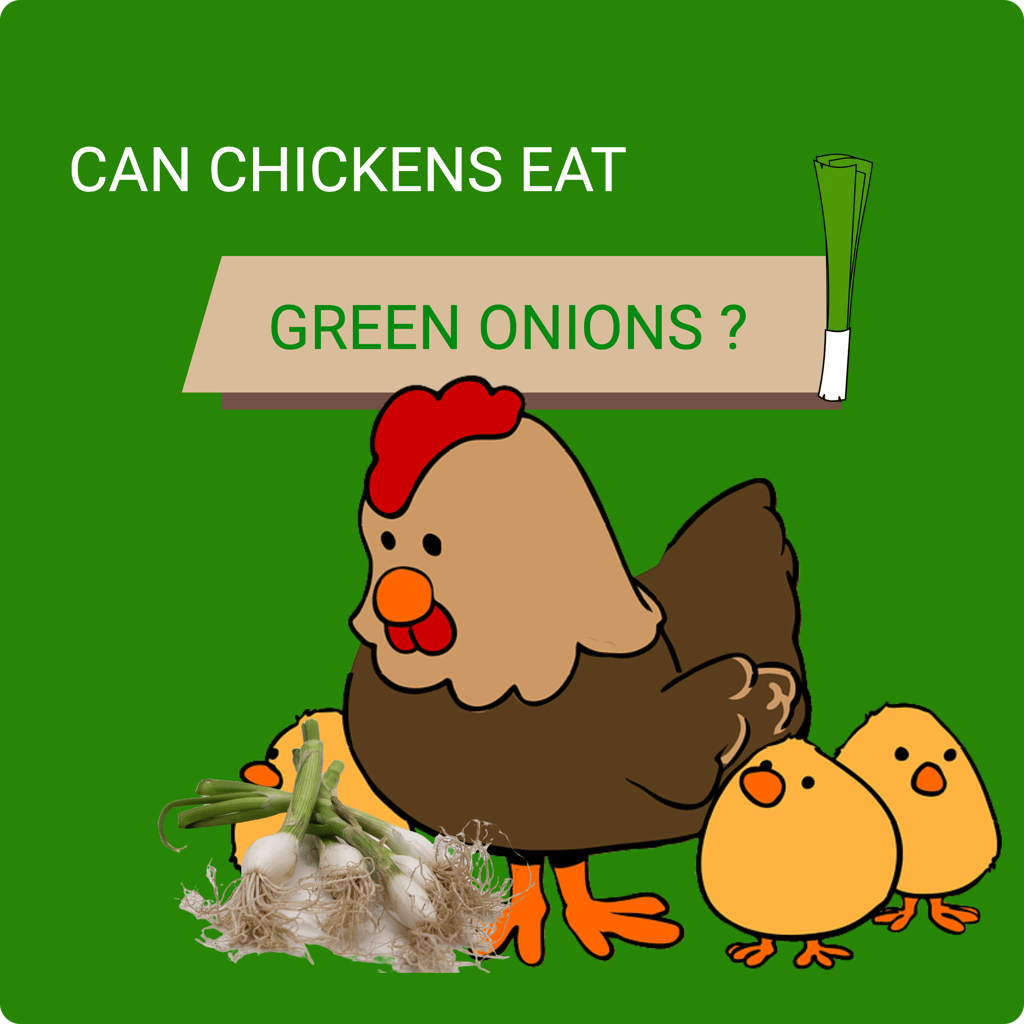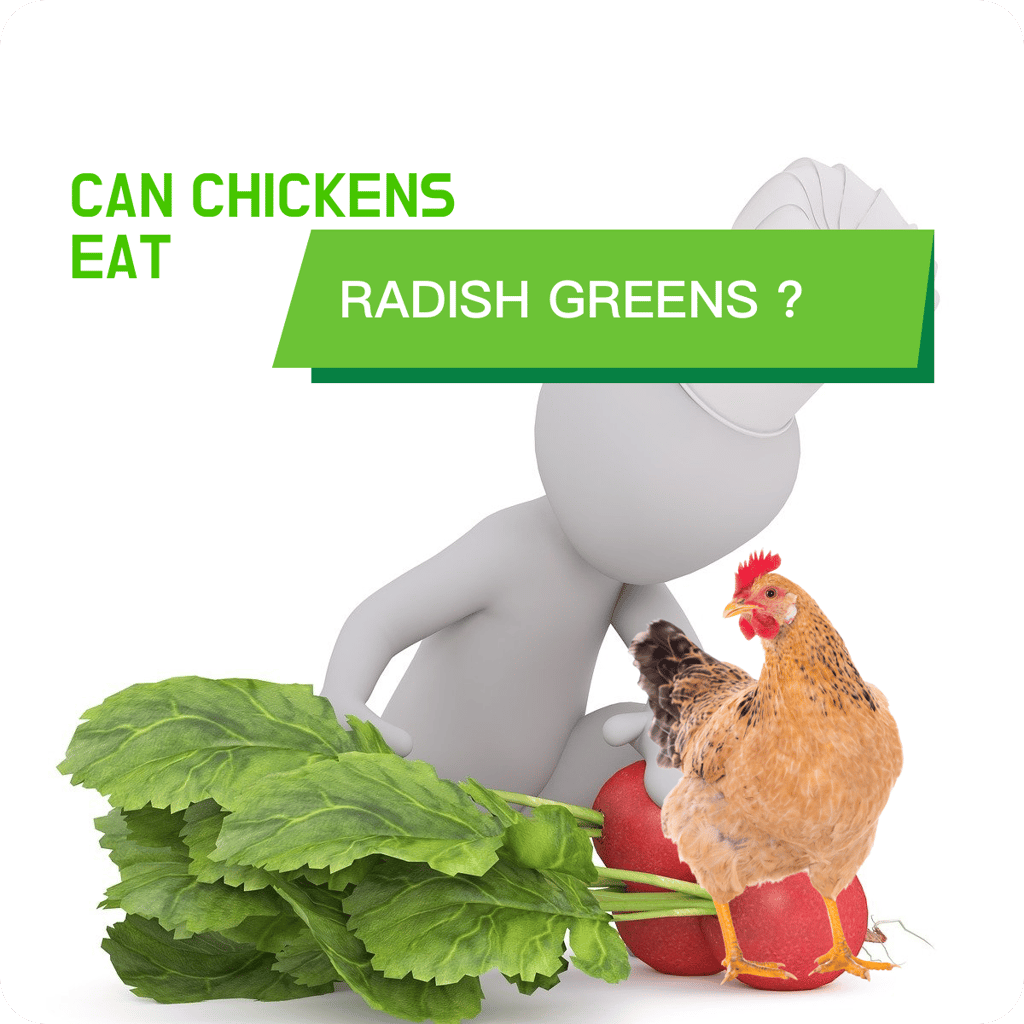Yes, chickens can eat cucumber peels. If you're wondering about the safety and suitability of feeding cucumber peels to your feathered friends, this article will provide you with all the answers you need. We will delve into the nutritional value of cucumber peels, discuss the potential benefits and risks, explore preparation and serving methods, consider sensitivities, and even suggest alternative uses for these peels in chicken care. Let's dive into this topic!
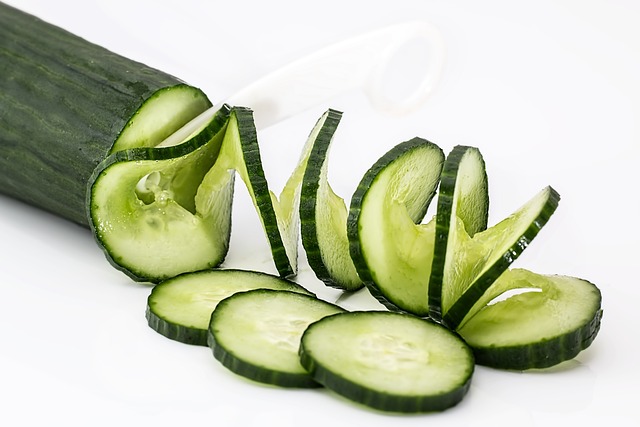
The Nutritional Value of Cucumber Peels for Chickens
When considering what to feed our chickens, it's important to ensure they receive a balanced and nutritious diet. Cucumber peels are a commonly discarded part of the vegetable, but are they suitable for chickens? Let's delve into the nutritional value of cucumber peels for our feathery friends.
| Nutrient | Amount per 100g |
|---|---|
| Water | 96g |
| Calories | 15 |
| Protein | 0.6g |
| Fat | 0.2g |
| Carbohydrates | 3.6g |
| Fiber | 0.5g |
Cucumber peels consist primarily of water and have a low caloric content. However, they also contain small amounts of protein, fat, carbohydrates, and dietary fiber. While these nutrient levels may not be as high as other feed options, they can still contribute to a varied diet for chickens.
It's worth noting that cucumber peels also contain essential vitamins and minerals including vitamin K, vitamin C, potassium, and magnesium. These micronutrients play vital roles in maintaining the overall health and well-being of chickens.
When introducing cucumber peels to your chickens' diet, moderation is key. It should be offered as a supplementary treat rather than a primary source of nutrition. A varied diet that includes a mix of grains, vegetables, and protein-rich feed ensures that chickens receive all the necessary nutrients for optimal growth and health.
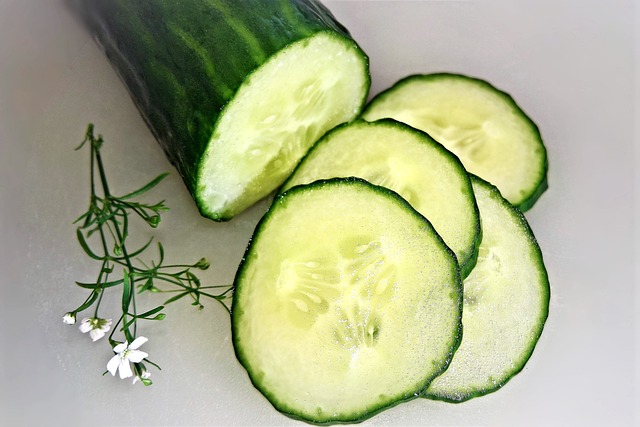
Potential Benefits and Risks of Feeding Chickens Cucumber Peels
Feeding chickens cucumber peels can have both benefits and risks to consider. Let's explore the potential advantages and disadvantages of incorporating cucumber peels into the diet of your chickens.
Benefits of Feeding Chickens Cucumber Peels
Cucumber peels are a good source of dietary fiber, vitamins, and minerals. Including them in your chickens' diet can provide the following benefits:
- Nutritional Content: Cucumber peels contain vitamins A, C, and K, as well as minerals such as potassium and magnesium. These nutrients contribute to the overall health and well-being of your chickens.
- Digestive Health: The fiber content in cucumber peels can aid in maintaining a healthy digestive system for chickens and promote regular bowel movements.
- Hydration: Cucumbers have a high water content, which can help keep chickens hydrated, especially during hot weather.
Risks and Precautions
Although cucumber peels can provide some benefits, there are a few risks and precautions to consider:
- Pesticides and Chemicals: If cucumbers were conventionally grown and treated with pesticides, the peels may retain some of these chemicals. It is recommended to use organic cucumbers or wash the peels thoroughly to minimize potential pesticide exposure.
- Overfeeding and Digestive Upset: Feeding too many cucumber peels to chickens can cause digestive issues like diarrhea or upset stomach. It's important to introduce them gradually into their diet and observe their response.
| Benefits | Risks |
|---|---|
|
|
Considering the benefits and risks, it is generally safe to feed chickens cucumber peels in moderation. However, closely monitor their response and consult a veterinarian for personalized advice based on your chickens' specific nutritional needs and health conditions.
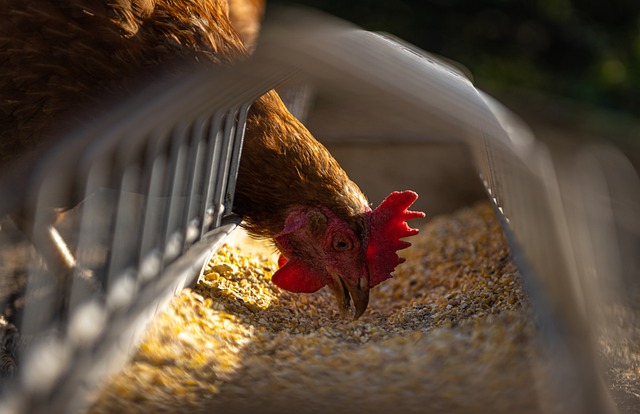
Preparation and Serving Methods for Feeding Chickens Cucumber Peels
When it comes to feeding cucumber peels to chickens, proper preparation and serving methods are essential to ensure their safety and enjoyment. Here are some guidelines to follow:
- Wash the cucumbers: Before peeling the cucumbers, make sure to thoroughly wash them to remove any dirt or chemicals.
- Peel the cucumbers: Use a peeler or a knife to carefully remove the outer skin of the cucumbers, leaving behind the nutritious peels.
- Cut the cucumber peels: Chop the cucumber peels into small, manageable pieces that chickens can easily consume.
- Mix with other food: Cucumber peels can be mixed with other chicken feed, such as grains or pellets, to provide a varied diet.
- Observe portion control: Avoid overfeeding cucumber peels to chickens. They should only be given as a treat or supplemental part of their diet.
It's important to note that while cucumber peels can be fed to chickens, moderation is key. Excessive consumption may cause digestive issues, so it's best to introduce cucumber peels gradually and monitor your chickens' response. Additionally, always ensure that the peels are fresh and free from any mold or rot.
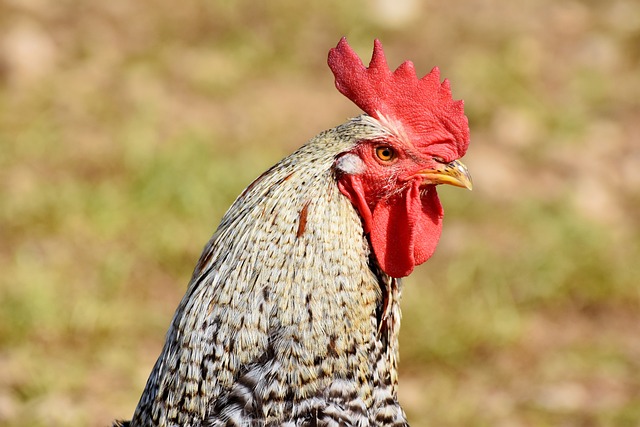
Considerations for Chickens with Digestive Sensitivities
Some chickens may have digestive sensitivities, which require careful consideration when it comes to their diet. While cucumber peels are generally safe for most chickens to consume, it's important to be aware of any potential adverse effects, especially for birds with sensitive digestive systems.
When feeding cucumber peels to chickens with digestive sensitivities, it is recommended to introduce them gradually and monitor their response. Start with small amounts and observe if there are any signs of digestive upset such as diarrhea or bloating. If any adverse reactions occur, it's best to discontinue feeding cucumber peels and consult with a veterinarian for further guidance.
In some cases, chickens with certain health conditions, such as gastrointestinal disorders or allergies, may be more prone to digestive sensitivities. It's important to maintain awareness of your chickens' overall health status and any specific dietary requirements or restrictions they may have.
| Signs of Digestive Sensitivities in Chickens |
|---|
| Diarrhea |
| Bloating or abdominal discomfort |
| Loss of appetite |
If you notice any of these signs in your chickens after feeding them cucumber peels or any other food, it is essential to take prompt action. Removing the cucumber peels from their diet and providing a more easily digestible alternative may help alleviate any discomfort they may be experiencing.
Furthermore, it's crucial to ensure a balanced and varied diet for chickens with digestive sensitivities. Along with cucumber peels, make sure they have access to other suitable food sources, such as high-quality chicken feed, fresh greens, grains, and protein-rich treats.
In summary, while cucumber peels can be a healthy addition to many chickens' diets, those with digestive sensitivities require special attention. Always monitor their response to feeding cucumber peels and consult with a veterinarian if needed to ensure their nutritional needs are met while keeping their digestive health in mind.
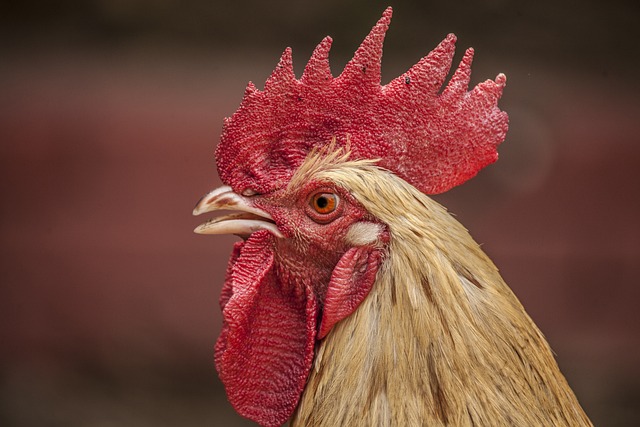
Alternative Uses for Cucumber Peels in Chicken Care
Aside from considering whether chickens can eat cucumber peels, it's worth exploring alternative uses for cucumber peels in chicken care. While cucumber peels may not be an ideal dietary option for chickens, they can still serve various purposes in ensuring the well-being and health of your feathered friends.
1. Natural Pest Repellent: Cucumber peels can be helpful in warding off pests and insects that can bother chickens. You can place cucumber peels around the coop or nesting areas to help repel common pests like flies and ants. Their strong scent acts as a natural deterrent, creating a more comfortable environment for your chickens.
2. Cooling and Hydration: During hot summer months, chickens may appreciate some extra cooling and hydration. Placing cucumber peels in their water dish or freezing them as a refreshing treat can help provide relief from heat stress. The high water content of cucumber peels can help keep chickens hydrated and improve their well-being in hot weather.
3. Skin Soother: Chickens are prone to various skin irritations, especially during molting or when suffering from feather mites. Cucumber peels can be utilized as a cooling and soothing agent for itchy and irritated skin. You can gently rub or apply cucumber peels on affected areas to alleviate discomfort and provide relief to your chickens.
4. Composting Material: If you maintain a composting system, cucumber peels can be a valuable addition. They are rich in nutrients and contribute to the organic matter and overall quality of the compost. Utilizing cucumber peels in composting not only minimizes waste but also enables you to create nutrient-rich compost to enhance your garden or chicken forage areas.
While cucumber peels may not be a staple in a chicken's diet, they can still have beneficial applications in chicken care. Remember to prioritize their overall balanced diet and consult a veterinarian or poultry expert for any specific concerns or dietary recommendations.
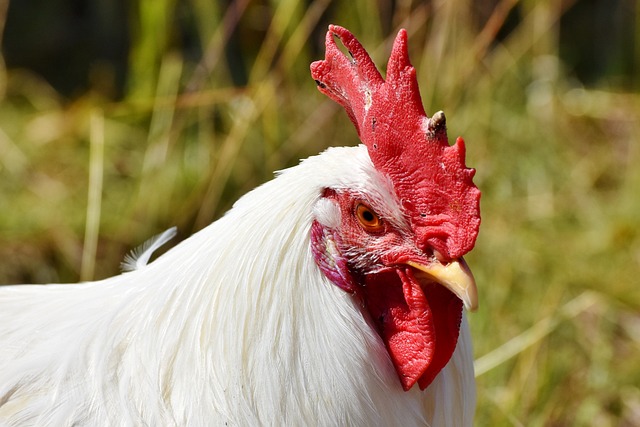
Conclusion and Final Recommendations
After exploring the feasibility and implications of feeding cucumber peels to chickens, it is important to draw conclusions and provide final recommendations for chicken owners. Here is a summary of the key points discussed:
| Key Points | Explanation |
|---|---|
| Nutritional Value | Cucumber peels contain certain vitamins, minerals, and fiber that can be beneficial for chickens' overall health. |
| Potential Benefits | Feeding chickens cucumber peels in moderation may offer hydration, antioxidant properties, and some digestive aid. |
| Risks | However, cucumber peels contain certain compounds that can be toxic or cause digestive issues in excessive amounts. |
| Preparation and Serving | If you decide to feed cucumber peels to your chickens, ensure they are washed thoroughly and cut into small, manageable pieces for easier consumption. |
| Digestive Sensitivities | Some chickens may have sensitive digestive systems, so it's important to monitor their reactions when introducing new foods. |
| Alternative Uses | If you're unsure about feeding cucumber peels to your chickens, you can explore other uses such as composting or using them as treats for other animals. |
Based on the information presented, the final recommendations regarding feeding cucumber peels to chickens are as follows:
- Offer cucumber peels as a supplement, not a staple, in their diet.
- Introduce cucumber peels gradually and monitor your chickens for any adverse reactions.
- Only provide cucumber peels that are fresh, organic, and free from any pesticides or harmful substances.
- Consider consulting with a veterinarian or poultry expert for personalized advice.
- Always prioritize a balanced diet and ensure your chickens receive proper nutrition from their regular feed.
By following these recommendations, you can make informed decisions regarding the inclusion of cucumber peels in your chickens' diet while ensuring their health and well-being.
Faqs
-
1. Are cucumber peels safe for chickens to eat?
Yes, cucumber peels are generally safe for chickens to eat. However, there are some considerations to keep in mind regarding the way they are prepared and served.
-
2. Can feeding cucumber peels to chickens improve their health?
Cucumber peels can provide certain nutritional benefits to chickens, including hydration and a modest amount of fiber and vitamins. However, it's important to maintain a well-balanced diet for chickens and not rely solely on cucumber peels for their nutrition.
-
3. How should I introduce cucumber peels to my chickens' diet?
When introducing cucumber peels to your chickens' diet, it is advisable to start with small amounts and gradually increase over time. This allows their digestive system to adjust and minimizes the risk of digestive upsets. Additionally, make sure to thoroughly wash and cut the cucumber peels to remove any pesticides or harmful substances before feeding them to your chickens.

